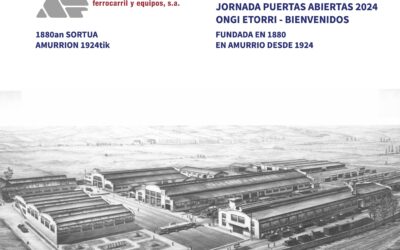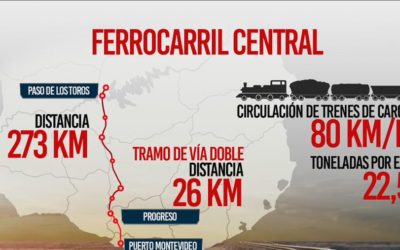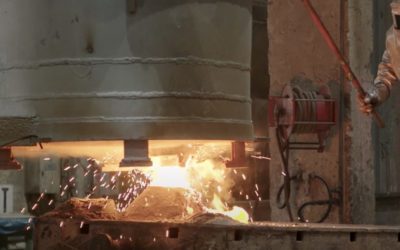- BIRHAKOM, a pioneering project with benefits in ecology and local economy
- In collaboration with Tecnalia and with funding from the European Union and the Basque Government.
- The objective is to reduce waste disposal, transforming it into fertilizer or filler for geothermal installations.
The BIRHAKOM project, launched by the company from Alava, seeks to reduce the dumping of foundry sand once it has been discarded in dumps and landfills.
Through an innovative process of composting together with plant pruning waste and manure from nearby farms, the waste is transformed into agricultural fertilizer or into high added value filler material for the installation of geothermal systems.
The system results in significant benefits for the local ecology and economy.
BIRHAKOM is the acronym for “birziklatu harea kompos”, “recycle sand compost” in Basque. A descriptive name for a project whose ultimate goal is to recycle sand by composting, preserving the environment, reducing the use of raw materials and seeking ecological and sustainable solutions.
This project thus promotes the circular economy, following a model in which waste becomes a resource at the end of the product’s useful life.
Amurrio Ferrocarril y Equipos is the first company in the Basque Country to recycle foundry sand by composting. This is a breakthrough with benefits for the ecology in our environment, as well as a boost to the sustainability of metal smelting, as it is happening in pioneering countries such as Finland.
This project is also expected to generate a reduction in logistics and waste disposal costs and the creation of at least three jobs between 2021 and 2023.
Foundry sand
The manufacture of metal parts through the casting process consists of pouring molten metal into a sand mold with the shape of the part to be obtained.
The metal solidifies in this mold as it cools, thus acquiring the shape of the part.
The destruction of a mold generates a large amount of sand. The recovery processes are capable of recycling up to 85-90% of the foundry sand used in the processes. But this sand can be used for the manufacture of new molds a limited number of times. When it has reached the end of its life cycle, it becomes a waste product that is deposited in landfills.
Local landfills are being replaced by large European landfills. The long distances and the costs involved in transporting waste are increasing.
It is in this context that the alternative proposed by the BIRHAKOM project makes sense.
From this method of bioregeneration of foundry sands, it will be possible to reduce the presence of contaminated materials in landfills, and to use this new bio-stabilized material or compost for soil conditioning and backfill material, as well as in geoengineering applications.
Bioregeneration
The composting process combines the mixture of green foliage with wood, sands and animal excrement. Due to the abundance of nutrients used by microbes as an energy source, the degradation of organic matter is relatively fast at the beginning of the composting process. In this first phase the thermal energy produced by the active microbes causes the temperature of the heap to rise. As nutrients are consumed, microbial activity decreases and a drop in temperature occurs.
Subsequently, the microorganisms degrade cellulose and lignin. The pH stabilizes and oxygen demand is reduced.
The final stage of the composting process is curing, aging or maturation. This is a long stage, between four and nine months, in which microbial activity decreases and human pathogens disappear, leaving a material that is very rich in plant nutrients and inert and safe for use in agriculture.
Amurrio Ferrocarril y Equipos, S.A., leader of the project
This company has been designing, producing and installing railway equipment since 1880, when the company was founded in Bilbao.
In 1929 it moved to new, larger and better equipped facilities, with foundry as core business and CNC machining machines, etc. in the nearby town of Amurrio. From here it participated in the main railway construction projects in Spain and Europe throughout the 20th century.
In 1995, under the name of Amurrio Ferrocarril y Equipos S.A., it began a new stage in which it specialized in the design and manufacture of turnouts, crossovers and track components for high-speed railroads, streetcars, subways, conventional railroads and freight tracks all over the world. It currently exports more than 50% of its production.
TECNALIA, subcontracted center and technological partner
TECNALIA is a private foundation belonging to the RVCTI that has 1405 researchers on its staff, mainly concentrated in the headquarters of the three Basque capitals, although it also has staff in Aragon, Madrid, Slovenia, Mexico, USA and China, to mention the most important ones.
Its activities are focused on the field of materials technologies, their processes and the environment. The BIRHAKOM project will be coordinated by the Foundry and Steelmaking unit belonging to the Industry and Transport Division with the support of personnel from the Technological Services Division, in addition to a qualified and experienced team to carry out the tasks for which it is subcontracted.
More information:
info@amufer.es
T. +34 945 891 600




